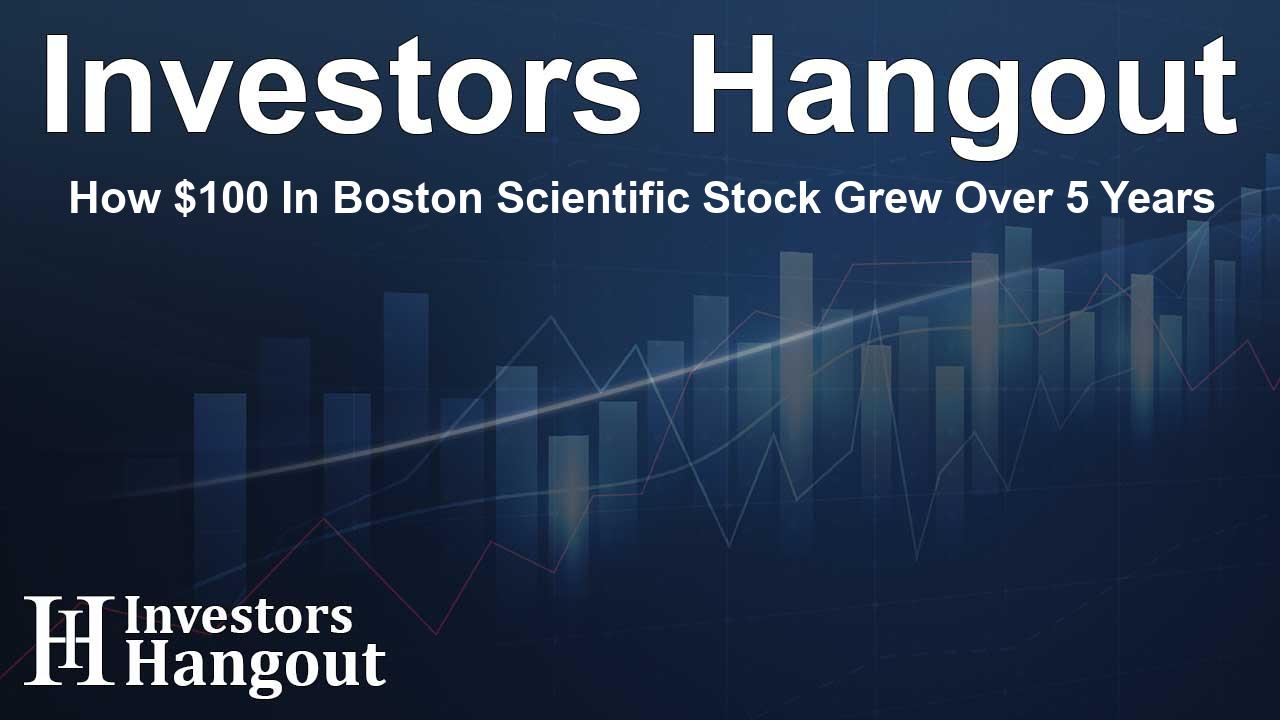How $100 In Boston Scientific Stock Grew Over 5 Years

Understanding the Growth of Boston Scientific
When it comes to investing, timing and choice of stocks are two pivotal elements that can lead to significant financial growth. Boston Scientific (BSX) is an example of a company that has successfully navigated the challenges of the market. Over the past five years, BSX has consistently outperformed the broader market, emerging as a robust option for investors.
Five-Year Performance Insights
Boston Scientific has recorded an impressive average annual return of 20.59%, eclipsing the market by 7.61% annually. Currently, the company boasts a market capitalization of $156.41 billion, which underscores its stature in the healthcare industry.
Investment Example: A Look at $100
For those curious about the tangible results of investing in BSX, consider this: if an investor purchased $100 worth of Boston Scientific shares five years ago, that initial investment would have grown to approximately $257.80 today. This transformation is largely due to the company’s innovative products and strategic growth initiatives.
The Power of Compounding Returns
What makes investing in stocks like Boston Scientific compelling is the concept of compound returns. Compounding means that the earnings from the investment generate their earnings over time, leading to exponential growth. This principle explains why the $100 investment doubled more than two and a half times over just five years.
Factors Contributing to Boston Scientific's Success
Many factors contribute to Boston Scientific's remarkable performance. The company is a leader in medical devices, specializing in areas such as cardiology, rhythm management, and other therapeutic areas. Its commitment to innovation has allowed it to maintain a competitive edge, even in a rapidly changing industry. Moreover, robust demand for healthcare solutions post-pandemic has provided a tailwind for growth.
Looking Ahead: Future Prospects
As an investor, considering the future trajectory of a company is crucial. Boston Scientific continues to innovate, expanding its product lines and exploring new markets. For instance, significant investments in research and development ensure that the company remains at the forefront of medical technology advancements.
Frequently Asked Questions
1. What is the current market cap of Boston Scientific?
Boston Scientific currently has a market capitalization of $156.41 billion.
2. How much would a $100 investment in BSX be worth today?
A $100 investment in Boston Scientific five years ago would be worth approximately $257.80 today.
3. What factors have contributed to Boston Scientific's growth?
Key growth factors include innovation in its product offerings and the increasing demand for healthcare solutions.
4. How has Boston Scientific outperformed the market?
Over the past five years, BSX has outperformed the market by 7.61% on an annualized basis.
5. What sectors does Boston Scientific specialize in?
Boston Scientific specializes in medical devices across various areas, including cardiology and rhythm management.
About The Author
Contact Evelyn Baker privately here. Or send an email with ATTN: Evelyn Baker as the subject to contact@investorshangout.com.
About Investors Hangout
Investors Hangout is a leading online stock forum for financial discussion and learning, offering a wide range of free tools and resources. It draws in traders of all levels, who exchange market knowledge, investigate trading tactics, and keep an eye on industry developments in real time. Featuring financial articles, stock message boards, quotes, charts, company profiles, and live news updates. Through cooperative learning and a wealth of informational resources, it helps users from novices creating their first portfolios to experts honing their techniques. Join Investors Hangout today: https://investorshangout.com/
The content of this article is based on factual, publicly available information and does not represent legal, financial, or investment advice. Investors Hangout does not offer financial advice, and the author is not a licensed financial advisor. Consult a qualified advisor before making any financial or investment decisions based on this article. This article should not be considered advice to purchase, sell, or hold any securities or other investments. If any of the material provided here is inaccurate, please contact us for corrections.
